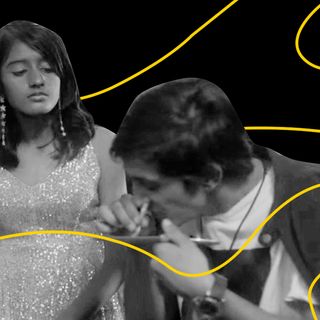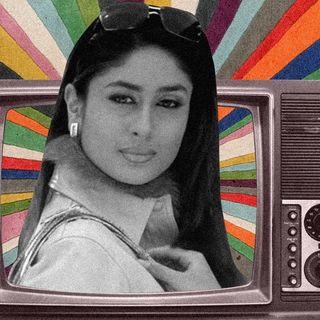In The Buzz Cut, we bring you a round-up of all the weird, controversial, and wonderful stories we’ve been reading all week.
Remember Cho Chang, the girl Harry Potter was first attracted to? The actor, Katie Leung, recently revealed the barrage of vile comments and racist abuse she faced online while the series was being shot. This is what she was told: “…just say it’s not true. Say it’s not happening.” Leung’s disclosure lands amid an ongoing reckoning around race. Can collective shame rush to defang prejudice?
*
Prince William, one of the many representatives of the monarchy, on his part has declared that the Windsors are not a racist family — following Oprah’s divisive interview with Meghan Markle and Prince Harry. While the royal rupture emerged as a moment of national reckoning, Meghan’s account of the “princess story” does more: it punctures all sorts of holes in childhood’s fairy tale canard. Turns out it’s all a trap: “…the princess is expected to be young, virginal, biddable, and white. Anything else presents a destabilizing problem.”
*
The pandemic has completed its one-year mark, inspiring people to look back on their ‘last hurrahs’ at this time last year. Mourning takes on a different color, particularly when the experience of loss is still happening. Big or small, old or recent, loss needs to be respected and noticed: “Burn a candle; put a balloon in the air.”
*
The Romans and Greeks left behind a magnificent but distant legacy. The traditional study of Classics is thus facing an existential crisis, as white, privileged men seem to hog all scholarship. But a generation with a TikTok habit is taking matters into its hands: a 19-year-old, for instance, addresses the long-standing question of Homer’s Achilles’s sexuality through a quirky TikTok video. “I’m just helping them [ancient texts] seem more down to earth,” she says, noting it’s all in the public interest.
*
Japan took a moment to grieve this week, marking a decade since the triple disaster (an earthquake, tsunami, and nuclear power plant meltdown) battered the nation. Three people recount the devastation of March 11, 2011, what recovery means, and how they hold on to hope.
*
An AI became the talk of Silicon Valley recently, boasting of its remarkable ability to “write like humans” — think songs, stories, guitar tabs, interviews, technical manuals. “I feel like I’ve seen the future,” an entrepreneur said of this development. But the dirge of every AI remains the same: its inability to understand what it’s saying. While we mull over the ethics and sustainability of AI-generated language, here’s a poem by the AI computer for your pleasure: “I think I’ll start to rain,/ Because I don’t think I can stand the pain,/ Of seeing you two,/ Fighting like you do.”
*
A new discourse around trauma and pain is asking if it can pass through generations, almost as if it were embedded in our DNA. The question of inheritance impacts social justice and wellness considerations — with some theories exploring if oppressive behavior like white supremacy can also be passed down. But, that is, if it even occurs.
*
Private schools like to have the cake and eat it too: pretend to nobly usher in social change while allowing access only to the upper crust of the society. Globally, they breed an unnatural meritocracy, entrenching inequality and leaving behind an inordinate burden on public schooling. Can their posturing ever be defensible? We don’t think so, because “In a just society, an education wouldn’t be a luxury item.”
*
The West’s wellness industry — which relies on ‘exotic’ Indian traditions, and even goods and materials produced by Indian farmers — has stayed mum about the farmers’ movement. Is it a textbook case of cultural appropriation and brazen apathy? “Perhaps influencers simply don’t feel directly impacted because they don’t know or care for the labor behind their ashwagandha.”




